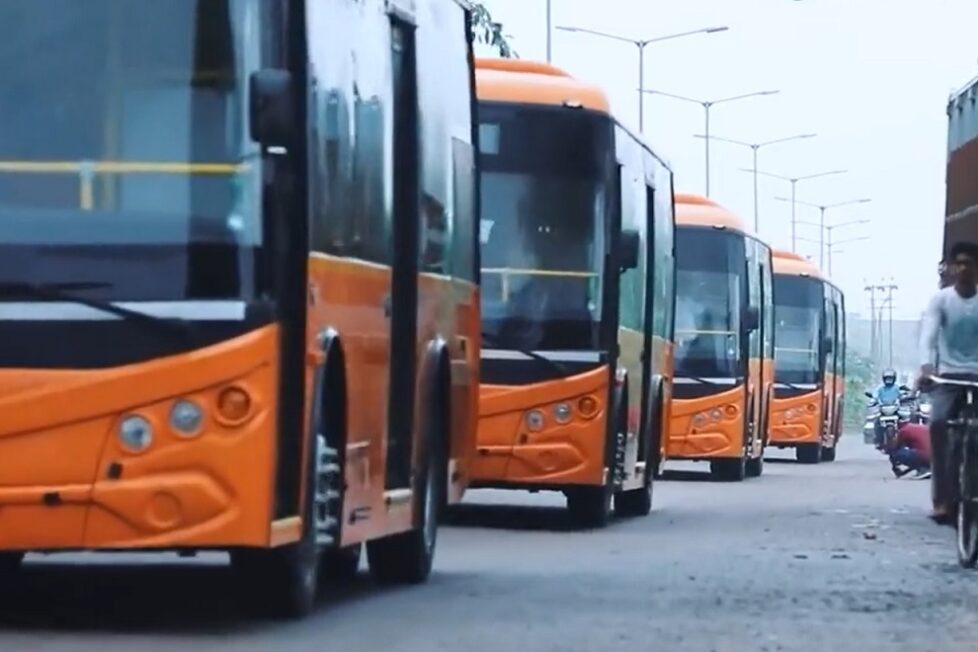Goldman Sachs & Bloomberg-backed Climate Fund Announces Sustainable Transport Investments in India, Vietnam


The Climate Innovation and Development Fund (CIDF) , backed by philanthropic capital from Bloomberg Philanthropies and Goldman Sachs, announced today the completion of its first set of blended finance investments, focused on innovative electric mass mobility solutions in India and Vietnam, including electric buses and charging infrastructure.
Launched last year, CIDF aims to support sustainable low-carbon economic development in developing countries in South and Southeast Asia, offering grants to high-impact projects that can have direct and measurable positive climate-related outcomes, including both climate mitigation and adaptation. Targeted innovation areas include renewable power generation, sustainable transport, climate-smart urban solutions, grid optimization technology, agriculture and land use, and green manufacturing and construction. The fund is managed by Asian Development Bank (ADB).
Michael R. Bloomberg, founder of Bloomberg LP and Bloomberg Philanthropies, said:
“Switching to clean power and electric transportation can bring enormous benefits to developing countries but up-front costs often stand in the way. This initiative brings people together to unlock capital and jump-start more projects that will cut emissions, improve public health, spur economic growth, and create jobs.”
Blended finance brings together public or philanthropic capital and private funding through a common investment structure, enabling investors to invest in certain types of investments that have high perceived risk profiles, such as new climate mitigation-related technologies. The instruments are designed to attract large-scale institutional capital, allowing public financiers and other donors to use a small amount of their own resources as a first loss to mobilize large amount of private capital to reach large number of underlying climate projects needed.
The fund was launched with $25 million in grant commitments from Bloomberg Philanthropies and Goldman Sachs, and aims to leverage up to $500 million in additional financing for private sector innovation.
David Solomon, Chairman and CEO of Goldman Sachs, said:
“Creative solutions like blended-finance facilities can mobilize the capital needed to advance sustainability. By encouraging more private capital to support projects like these, the Climate Innovation and Development Fund will accelerate the decarbonization of mass transportation in India and Southeast Asia and make further progress in the journey of climate transition.”
The investment announced by CIDF in India will support the GreenCell project’s purchase of electric buses to replace existing diesel buses operating on 56 high traffic intercity routes in several cities, and support charging infrastructure including solar-plus-battery solutions at the bus depots. The buses are expected to serve five million people for year, and the project is anticipated to reduce approximately 15,000 tons of CO2 emissions per year. According to Goldman Sachs, the fund’s investment will mobilize approximately 14 times its investment capital.
In Vietnam, the investment, expected to mobilize 44 times its investment capital, will support the Vinfast project, developing the country’s first electric bus fleet for public transport and the first national electric vehicle charging network, building up to 140 electric buses, and 150,000 charge points in thousands of stations across the country.
ADB President Masatsugu Asakawa, said:
“Mobilizing capital at scale is critical in the battle against climate change, especially in Asia and the Pacific where this global fight will be won or lost. By supporting important new initiatives such as the Climate Innovation and Development Fund, partners like Bloomberg Philanthropies and Goldman Sachs can help marshal the private sector finance needed for transformative projects that can put the region on a path to low carbon economic growth.”
The post Goldman Sachs & Bloomberg-backed Climate Fund Announces Sustainable Transport Investments in India, Vietnam appeared first on ESG Today.